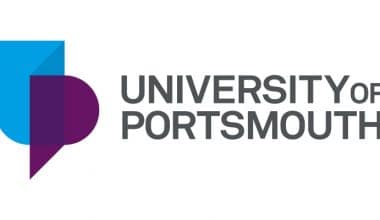Dentistry programs usually take a long time to complete. Most times, they span into six years, and you might not have that patience, and the increasing number of cavity problems demands more dental professionals. ‘
So, instead of pursuing this program, you can venture into any accelerated dental programs that ensure you complete a full dental program in less time.
Getting accepted into dental school is not easy. Only 55.3% of dental school applicants applied to 66 accredited dental schools in the United States.
For the 2018-2019 academic year, they were already enrolled in one that year, according to admission statistics from the American Dental Association.
In this article, we will give you detailed information on all you need to know about accelerated Dental Programs in 2024 and how they can benefit you as a student.
Here is an overview of what to expect:
Table of contents
- What to Know About Dental Program
- What Are the Personal Qualities You Need to Excel as a Dentist?
- What are the Types of Dental Degrees and Dentists?
- How to Decide If Dental School Is Important
- How Can Accelerated Dental Programs Benefit Students
- What are the Pros and Cons of an Accelerated Degree Program?
- How to Succeed in an Accelerated Dental Degree Program?
- Conclusion
- Accelerated Dental Program 2024 FAQs:
- References
- Editors Recommendation:
What to Know About Dental Program
A career as a dentist results in a six-figure annual salary. The Average Salary of a US dentist in 2018 was $156,240, according to the Bureau of Labor Statistics.
Dentists specializing in areas like oral and maxillofacial surgery and orthodontia generally receive $208,000 or more.
“Each dental school has different requirements and suggestions for applicants, and it is important that each applicant thoroughly research each institution they plan to apply to,” written by Naty López, assistant dean of admission and diversity at the University of Minnesota School of Dentistry, in an email.
Before joining the College of Dentistry, a prospective dentist usually earns a bachelor’s degree and must complete basic undergraduate courses with biology, general chemistry, organic chemistry, and physical laboratories, according to the Dental Preparation Department section of the American Dental Education Association website.
Plus, some dental schools require undergraduate coursework in anatomy and physiology, microbiology, biochemistry, and English composition, according to the ADEA website.
Aspiring dentists should also be aware that there is a dental school entrance exam, the Dental Admission Test.
This multiple-choice assessment includes science puzzles, math problems, spatial reasoning exercises, and reading comprehension questions. Scores range from 1 to 30, with 19 as the national average.
However, Lopez advises dental school hopefuls to remember that their competitiveness is not determined entirely by their academic statistics, such as their GPA and DAT score.
“Ultimately, schools are interested in applicants who show an interest in the field of dentistry, which includes a strong interest in science, competitive academic scores, passion for volunteering and service, and desire to help those in need,” says Lopez, who has a Ph.D. in health professional education.
What Are the Personal Qualities You Need to Excel as a Dentist?
Dentists say their profession requires a stronger spatial awareness and excellent hand-eye coordination because it involves performing delicate procedures in confined spaces.
A dentist based in New York City once said, one sign that a person has what it takes to be a dentist is if he or she derives joy in building or crafting.
Those hobbies involve the type of artistry and dexterity that are necessary for dentistry, as explained.
There is another indication that dentistry is suitable for a person if they are fascinated by scientific progress that improves preventive dental care, as said by Dr. Edward Corel, vice president of clinical affairs for DentaQuest, a multistate network of dental healthcare centers.
One example of groundbreaking dental technology is an innovative method of identifying and addressing cavities early before the structure of a tooth has been compromised.
“We can hopefully treat disease at the earliest stage without waiting until it has a devastating effect on the patient,” said Coryell.
Chern adds that dentists must be understanding, compassionate, and calm like all healthcare professionals.
Dr. Marc Lazare, a general and cosmetic dentist in New York City, emphasizes that dentists must be versatile.
“With patients,” he wrote in an email, “you are not only their oral health care provider, but at times you are their therapist, health educator, and the quarterback who coordinates between other dental specialists and other medical providers.”
Lazar adds that dentistry requires strong skills for people. “The difficult part of working with teeth is that they relate to people, and they are all different,” he says.
“Each patient comes with their history of dental treatment, phobia, fears, desires, physical restrictions, health problems, and neuroses.”
What are the Types of Dental Degrees and Dentists?
A dentist may have a DDS degree, a Doctor of Dental Surgery, or a DMD degree, which is a Doctor of Medicine in Dentistry or Doctor of Dental Medicine degree. These degrees are similar.
The dental school generally lasts four years, although the accelerated degree can take only three years. A graduate dental program generally includes a scientific and clinical curriculum.
Dr. Ronnie Myers, dean of the Touro College of Dental Medicine at New York Medical College, says that the dental school curriculum typically involves an abundance of hands-on practice, in part because all dental school grads are expected to be “practice-ready” on graduation day.
“Students have to be taught all the hand skills of procedures that they will be able to perform once they are licensed,” says Myers, who is also a professor of dental medicine.
According to the ADA, anyone who hopes to become a U.S. dentist must obtain a license to practice within the state where they intend to work. Every U.S. state requires licensed dentists to pass the National Board Dental Examination.
Aspiring dentists can choose a career in general dentistry or focus on the dental specialty, in which case they must complete residency within this specialty.
The duration of the specialized dental residency depends on the specialty and its affiliated school, so the specialized residence can vary from two to six years.
The ADA recognizes 10 dental specialties.
- Dental anesthesiology: Focuses on pain mitigation and overall patient well-being during dental procedures.
- Dental public health: This is about optimizing the dental health of a community.
- Prosthodontics: which involves the creation of dentures and providing other treatments to address missing or deficient teeth.
- Oral and maxillofacial radiology: This involves the use of data and imaging technologies like X-rays to identify injuries and illnesses.
- Endodontics: which focuses on the pulp within teeth and often involves root canals.
- Oral and maxillofacial pathology: This centers on diagnosing mouth diseases using various techniques, such as microscopic examinations.
- Oral and maxillofacial surgery: This entails performing operations in and around the mouth.
- Orthodontics and dentofacial orthopedics: which focuses on the prevention and correction of misaligned teeth and jaws.
- Pediatric dentistry: which centers on the dental needs of infants and children.
- Periodontics: which involves addressing gum problems.
How to Decide If Dental School Is Important
Dr. Krysta Manning, the Solstice Dental and Aesthetic Clinic owner in Louisville, Kentucky, says dental training is a “marathon, not a race,” so dental school prospects should understand the time commitment.
“Dental school is a four-year commitment, during which you are expected to spend approximately 40 hours per week in classes and clinics in addition to the time required to study for exams,” Manning wrote in an email.
“Due to the time commitment, it is difficult to keep adding jobs to supplement living expenses. Therefore, most students require loans not only for studying but also for living expenses.
The average dental school debt among dental school graduates in the class of 2018 who took out loans for students to finance their education was $280,410, according to ADEA.
Although the cost and time involved in dental training can be intimidating, the profession can be personally fulfilling and financially rewarding, Low says.
“Despite being a financial and timely investment, the rewards of being a dental specialist are extensive,” he wrote in an email. “Patient care is very rewarding, and there is a financial guarantee that comes with being a dental professional.”
See Also: Dental Hygienist vs. Dental Assistant: 10 Differences You Don’t Know
How Can Accelerated Dental Programs Benefit Students
These are the top benefits students can expect from attending accelerated Dental programs. Remember that each program is unique, so some of these might not apply, but most certainly will.
1. Convenience of blended learning:
Many dental schools are implementing online courses in the accelerated program to facilitate faster learning.
Coordination of blended learning saves time and adds maximum flexibility to already busy students.
2. Potential to save money:
By spending less time in school, students can save money on tuition. Shaving a semester or two off a degree can easily put another $10,000 or more in a student’s bank account.
3. Test out of pre-requisites:
To save more time, many accelerated dental programs require students to complete the basic requirements before beginning the basic curriculum.
Many dental programs allow students to take exams for some courses to facilitate the process of completing the prerequisites.
4. Looks great on a resume:
Accelerated dental programs are hard, not just academically, but from a time management perspective.
Employers recognize that a student who can succeed in an accelerated program will also possess the willpower and organizational skills to succeed at work.
5. Get to your career faster:
Education is only a means to an end for most students, as the “end” is the beginning of a new career. Accelerated dental programs make it easier for Prospective dental student to reach their career goals faster.
6. Increased salary potential:
As a general rule, the more educated someone has, the more money they can make. Therefore, the easier someone can get a more advanced degree, the easier they can earn more money through career advancement.
What are the Pros and Cons of an Accelerated Degree Program?
The goal of an accelerated program is to get students out of school and into the workforce as quickly as possible.
As prospective students begin to choose an appropriate program for them, the Accelerated Degree Program option is often a consideration.
This often means weighing the pros and cons of the accelerated degree program for decision making.
Semesters vs. Terms
Accelerated programs often use shorter semesters to complete classes, as quarters or terms take between 5 and 12 weeks to complete.
In contrast, traditional programs are completed in semesters, meaning you spend more time taking each course. Longer semesters give students more time to study and learn each subject.
A full-time student in a traditional undergraduate program typically receives 12 credit hours per semester.
These programs are designed to complete in approximately four years. Master’s programs are generally designed to be completed within two years. The traditional program lessons for both degrees are often offered in semesters of 16 weeks.
Time
The amount of time spent on an accelerated degree program can be both a benefit and a disadvantage. An accelerated program means more to do in less time.
The programs include the same number of courses with the same number of readings and the same amount of coursework as a traditional four-year program.
On the surface, that looks like a definite benefit, but this also has disadvantages.
The amount of time required to complete the courses more quickly can be a disadvantage.
With families and full-time work positions, students in an accelerated degree program will have a full schedule and much less free time than students in a four-year program.
Traditional Classroom vs. Blended Formats
Not including online programs, more accelerated degree programs are incorporating blended course curriculums to complete the number of hours in less time.
In these programs, half of the student’s time is spent in a classroom, and the other half is designed to be completed online with various activities, taped lectures, readings, discussion forums, and other activities.
Financing and Scheduling
When considering class financing and scheduling, most accelerated programs are believed to offer many benefits.
Some accelerated programs actually cost less than traditional programs, and many of these programs are designed with flexible and convenient programming options to accommodate non-traditional students, usually full-time adult students and families.
One downside is that the financial assistance available for accelerated programs may be less.
Accelerated degree programs offer students the same education as traditional degree programs but can be completed in less time. Weighing the pros and cons can help potential students decide if these are the best programs for them.
How to Succeed in an Accelerated Dental Degree Program?
Now that you’ve decided to jump into an accelerated dental program, you’ll need to do whatever it takes to make the most of your education.
Here are some important characteristics that successful students share in Fast Track dental programs:
1. Be proactive:
Anticipating what to expect is an extremely important part of doing well in these programs. For example, anticipating when clinic completion will occur can allow dental students to adjust their work schedules well in advance.
2. Set reasonable expectations:
Being realistic can help with the psychological challenges dental students will typically face, such as mitigating disappointment over a bad grade. It can also force students to make an adjustment before it’s too late.
3. Hit the ground running on day one:
Be prepared to hit the books immediately. Gone are the days where it takes a class or two for things to pick up and the learning to begin.
4. Stay organized:
In an accelerated dental program, staying organized is literally half the battle. Being fully prepared for an exam means nothing if you forget to log on at the appropriate time to take it!
5. Don’t procrastinate:
In a traditional college or graduate school course, there’s usually a full semester to catch up on overlooked material. But this ability is diminished in an accelerated dental program.
6. Practice self-care:
Taking care of grades is important, but so is taking care of emotional and physical health. Don’t forget that taking some time off to relax or engage in fun activities is always okay.
7. Use support systems:
Taking advantage of support systems is a good way to practice self-care and maintain good health. For instance, there’s no need to spend hours reinventing a study outline that you could have gotten via email from a study buddy in five minutes.
8. Find a mentor:
Mentors can provide valuable instruction outside the classroom. Having a mentor can also create a connection that can help with future job searches or even graduate school applications.
Check out How Much Schooling You Need to be a Dental Hygienist?
Conclusion
An accelerated program allows dental students to obtain their academic credentials in a shorter period than a traditional program. Incoming dental students spend less calendar time in class and can get to work in their chosen profession sooner.
This is good news for dental students and other healthcare systems due to the increasing demand for medical professionals.
This means that healthcare organizations such as hospitals, clinics, and dental offices are constantly searching for graduates who have completed healthcare programs.
Accelerated Dental Program 2024 FAQs:
The ideal dental school applicant is meant to have a 3.5 cumulative GPA or higher. Many schools average Biology, Chemistry, and Physics (BCP) GPAs together. The average applicant should strive for a 3.4 GPA or higher for these science courses.
Some of them have high grades. Some dental schools will accept a few students through early admission programs with two to three years of college preparation. However, you should plan to earn a bachelor’s degree before starting dental school.
Accelerated Dental Programs can benefit students through these process:
1. The convenience of blended learning
2. Potential to save money
3. Test out of pre-requisites
4. Looks great on a resume
5. Get to your career faster
6. Increased salary potentials.
1. Be proactive
2. Set reasonable expectations
3. Hit the ground running on day one
4. Stay organized
5. Don’t procrastinate
6. Practice self-care
7. Use support systems
8. Find a mentor
References
- edumed– resource accelerated medical programs
- bestdegreeprograms– what are the pros and cons of an accelerated degree program
- usnews–how to get into dental school and become a dentist
Editors Recommendation:
- 13 best dental schools in North Carolina NC
- Top 10 Cheapest Dental Schools In The World | UPDATED
- 25 Dental Schools for International Students
- Dental Hygienist vs. Dental Assistant: 10 Differences You Don’t Know
- Top 10 Dental Hygiene Schools in California
- How Much Schooling Do You Need to be a Dental Hygienist?
Does this article meet your immediate needs? If yes, click the SHARE button to share with your friends. However, if no, leave a response on the comment box to express your concern or ask a question, and we will get back to you as soon as possible.





